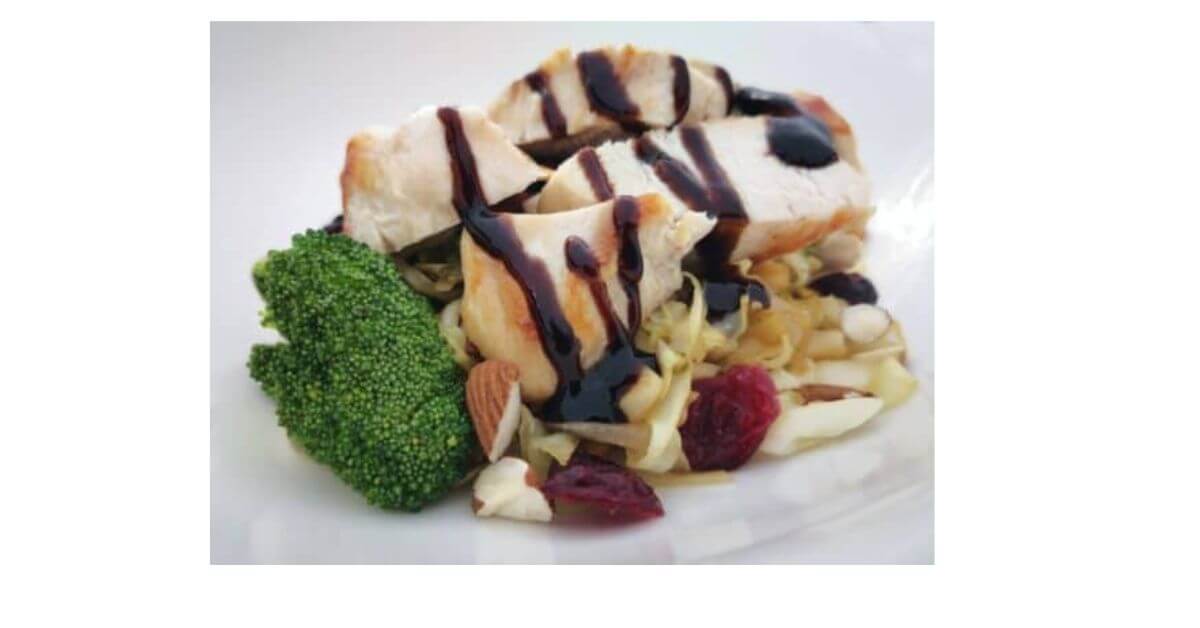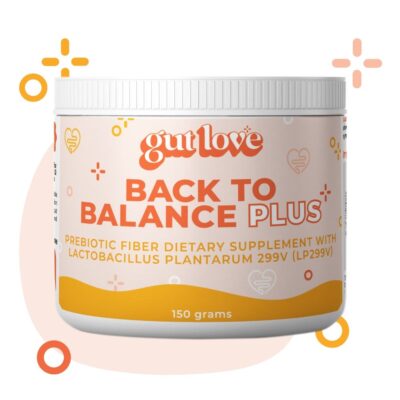The SCD diet – everything you need to know about it and more. To help you decide if it’s right for you. We will also put our take on it as well.
The SCD diet is frequently discussed in medical circles as a form of medical nutrition therapy for Crohn’s. It’s also one that we frequently hear questions about from our clients and readers.
So let’s dig in!
We know that dietary factors tend to determine the health of the intestinal microbiota more so than genetics. Diets that are higher in processed sugars and saturated fats have been shown to increase the permeability of the mucosal barrier (1).
There are many different dietary approaches that have been shown to help manage symptoms of Crohn’s Disease including exclusive enteral nutrition (EEN) for pediatric Crohn’s disease patients, Crohn’s disease exclusion diet (CDED), partial enteral nutrition (PEN), and specific carbohydrate diet (SCD) which is what we will be focusing on today’s blog.
So, what does this diet entail?
SCD Diet for IBD
What is The Specific Carbohydrate Diet?
In the 1920s, the SCD was originally developed by a pediatrician named Sidney Haas as a nutritional treatment for celiac disease. Then in 1987, a woman by the name of Elaine Gottschall published a book called “Breaking the Vicious Cycle” when her daughter was diagnosed with IBD. The book popularized the diet and it has since been used in IBD circles as nutritional therapy. But does it help in achieving remission?
The purpose of the specific carbohydrate diet h is to strictly avoid certain foods, mostly containing carbohydrates, to alleviate malabsorption and diarrhea commonly experienced in IBD patients (2). The SCD lists foods as either being legal (allowed) or illegal (excluded).
SCD diet “legal” foods list:
- Unprocessed meats (sugar-free bacon, beef, pork, chicken, turkey)
- Certain fruits and vegetables (cabbage, broccoli, banana, canned fruits in their juice), kiwi, and kale.
- Certain complex carbohydrates like beans and legumes (prepared per Breaking the Vicious Cycle)
- Dairy is not allowed unless yogurt is being consumed and made the SCD way or is aged for a specific number of days. Butter is allowed on the SCD while buttermilk is not.
- Nut butter including almond butter and peanut butter is allowed on the diet.
- Honey (as a sweetener)
SCD diet “illegal” foods list:
- Grains (oats, wheat, rice, barley, etc.)
- Milk products (except yogurt that has been fermented for 24 hours and hard cheeses)
- All sugar products and alternative sweeteners (including added sugars)
- Ultra-processed foods
- Emulsifiers including polysorbate 80, carrageenan, gums, and other food additives
- Certain beans (black-eyed beans, butter beans, chickpeas)
*For more on foods allowed, here is a more comprehensive resource from the book ‘Breaking the Vicious Cycle: Intestinal Health Through Diet’ of “legal” and “illegal” foods while following the specific carbohydrate diet.
As you can see, the SCD can be quite confusing since many of the foods overlap and are quite similar.
One of the goals of following the specific carbohydrate diet is to improve the microbiome and promote mucosal integrity in patients with IBD. But, does it really work?
What Does the Research Say on SCD for IBD?
Studies have shown that SCD improves IBD outcomes such as improvement in inflammatory markers and clinical remission. Let’s take a look at a few of them:
A double-blinded diet-controlled study looked at how pediatric patients with mild-moderate Crohn’s disease improved their clinical and lab markers through either an SCD diet, a modified version of the SCD diet, or whole foods diet. The difference between the modified version of the SCD is that whole grains were allowed while the SCD avoids all whole grains.
A total of 10 participants completed this study in a 12-week period, were between the ages of 7-18 years old, and followed from November 2015 to December 2018. All three diets were associated with an increased rate of clinical remission and an overall reduction in inflammation (1).
Furthermore, another retrospective study demonstrated that SCD helps improve inflammatory markers in pediatric patients with Crohn’s Disease. These markers included an improvement in hemoglobin, albumin, C-reactive protein, and fecal calprotectin (2).
Finally, the DINE-CD study was the first national dietary intervention study to help manage Crohn’s disease symptoms through diet. The study compared the specific carbohydrate diet to the Mediterranean diet. The results concluded both diets resolved symptoms in almost half of the 194 participants according to the Crohn’s and Colitis Foundation.
Since both diets were shown to achieve symptomatic remission, it would be best to explore which dietary pattern fits the client’s lifestyle best. A Mediterranean-style diet for Crohn’s Disease and Ulcerative Colitis may be more beneficial due to it being less restrictive than the specific carbohydrate diet.
SCD Diet Takeaways
Should all IBD patients follow the Specific Carbohydrate Diet?
First and foremost, any patient who decides to follow a specific carbohydrate diet should do so under the guidance of an experienced dietitian utilizing this diet. Because SCD eliminates certain foods from the diet, nutrients including thiamine, vitamin B6, folate, calcium, and vitamin D may not be sufficiently consumed causing a possible deficiency in an already malnourished IBD patient. Since grains are an illegal food, patients may lack the consumption of these important nutrients.
Patients may also have a decreased intake of fibers, which creates a shortage of short-chain fatty acids. Short-chain fatty acids have anti-inflammatory properties and have been shown to alleviate intestinal inflammation (3).
Before embarking on this diet, it’s best to understand the full clinical picture and your goals to determine whether this or another option would be most beneficial. Again, do so under the direction of a specialized IBD dietitian!
SCD Diet Key Takeaways
Following a specific carbohydrate diet has been shown to help with inflammatory bowel disease to some extent. While some patients may do well with it, others may have a hard time adapting to this type of treatment.
There are significant drawbacks to the diet. The SCD portrays foods as being “legal” or “illegal” which can make having a healthy relationship with food more challenging for IBD patients. Many IBD patients fear certain foods due to the unpredictable nature of the disease and how food(s) can react to their inflammatory state.
The SCD should be carefully recommended within the IBD community. And if being used, should be practiced with an IBD-focused dietitian who is well-versed in this diet. IBD patients alone are at an increased risk of malnutrition. So adopting this diet may not be recommended due to the lack of certain nutrients.
If you are ready to discuss a dietary pattern that works for you and your unique disease, schedule a free call here. We are well-versed in nutritional therapies for IBD and can help you manage your symptoms and reduce disease activity.
For practitioners: If the SCD is being used as nutritional therapy, it is important for the registered dietitian to monitor the patient closely. And be mindful of other versions of the SCD that may be explored to allow for a more lenient version. Since patients with Crohn’s Disease experienced relief from their symptoms with both the specific carbohydrate diet and a Mediterranean Diet, it can be helpful to decide which direction the patient should take to liberalize the diet.
Our take on it
We don’t use SCD in our practice. We see great results with patients using the methods we use with less restriction and more overall satisfaction. For those that come to us already on it – we try and help patients expand their diet to include more diversity.
If you’d like to work with us – check out the options here.
However, we do use elements also used in this diet like blending and peeling to improve tolerance!
References:
- Suskind, DL., Lee, D., Kim, YM., Wahbeh, G., Singh, N., Braly, K., Nuding, M., Nicora, CD., Purvine, SO., Lipton, MS., Jansson, JK., Nelson, WC. (2020). The Specific Carbohydrate Diet and Diet Modification as Induction Therapy for Pediatric Crohn’s Disease: A Randomized Diet Controlled Trial. Nutrients. Dec 6;12(12):3749. https://doi.org/10.3390/nu12123749.
- Chitnavis, MV., Braly, KL. (2019). The Specific Carbohydrate Diet in Inflammatory Bowel Disease: The Evidence and Execution. Nutrition Issues in Gastroenterology, Series #189. https://med.virginia.edu/ginutrition/wp-content/uploads/sites/199/2019/08/Specific-CHO-Diet-August-2019.pdf
- Venegas, DP., De la Fuente, MK., Landskron, G., et al. (2019). Short Chain Fatty Acids (SCFAs)-Mediated Gut Epithelial and Immune Regulation and Its Relevance for Inflammatory Bowel Diseases. Front Immunology. Mar 11;10:277. https://doi.org/10.3389/fimmu.2019.00277







Your review is biased and confusing. If fails to explain the definitions of monosaccharides, disaccharides and polysaccharides. It infers that all Sweeteners are prohibited, while in fact honey, Sweet n Low and organic Stevia ( no erithrotol in liquid ) ARE permitted.
I have a number of family and friends who have successfully gone into remission following the SCD diet, since the 90’s, no thanks to GI professionals. Go to goggle and count the hits.
The medical community is biased towards the latest miracle drug promoted by big Pharma, while most of them had next to no exposure to anything but the 20th century food pyramid. Elaine Gottshall was a scientist who meticulously used the Scientific Method to prove her results.
This is in fact an expensive, time consuming diet, food prep is mandatory, and healthy organic foods are out of reach for most Americans, but it does work.
Hi Joyce, I wouldn’t consider this to be a review – it’s really just a blog. We didn’t intend to point out the differences in carbohydrate types either. I’m glad to hear that your family and friends have benefited from SCD and are doing well! While it is true that a lot of medical providers do not have a lot of nutrition training, I do think that many are also very well versed and up to date with nutrition for IBD too.
We can agree on that SCD is expensive, time consuming and out of reach for many. I also agree that there is bias here. We all come to discussions (especially those online) with bias, but I think having awareness of it really helps create more open minded discussions and helps move science forward.
I also agree that there are some notable benefits to some aspects of SCD (like blending and peeling) that we can use to help with reduction of symptoms in those dealing with IBD symptoms. My thought on this in combination with all of the literature I’ve read on IBD nutrition – is that perhaps we can use aspects from a variety of studies to help people and fit it into the context of the person rather than to expect each person to adapt to strict protocols.
I’m simply interested in helping people with IBD bring back more quality of life and personally I have found SCD to be too strict with minimal results as compared to other approaches. That’s my personal take anyways!